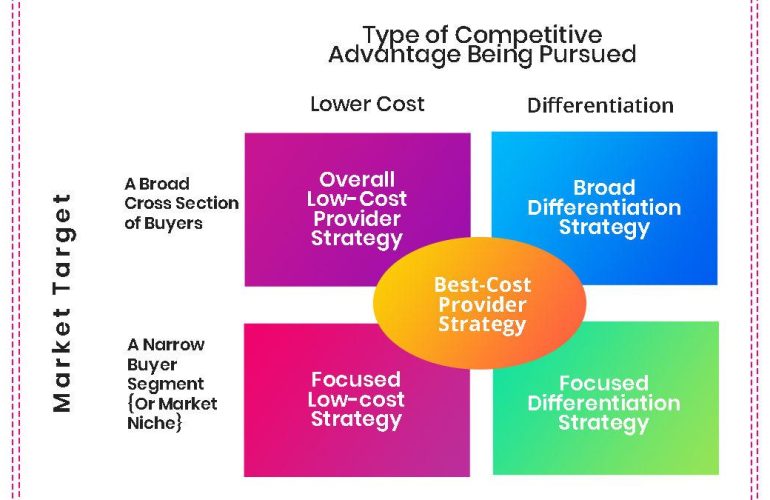In the dynamic landscape of entrepreneurship, startup founders often face a unique set of challenges that can test their resilience and confidence. Among these challenges, imposter syndrome—a pervasive feeling of self-doubt and inadequacy despite evidence of success—stands out as a significant barrier to personal and professional growth. For many innovators, the relentless pressure to perform and the fear of being exposed as a ‘fraud’ can stifle creativity and hinder effective leadership. This article delves into the nuances of imposter syndrome within the startup ecosystem, exploring its impact on founders and their ventures. By providing actionable insights and strategies, we aim to empower these entrepreneurs to recognize and confront this psychological hurdle, fostering a healthier mindset that promotes innovation, collaboration, and sustainable success in their budding enterprises. Join us as we unpack the complex relationship between self-perception and entrepreneurial spirit, equipping founders with the tools they need to thrive in an increasingly competitive market.
Table of Contents
- Understanding Imposter Syndrome and Its Impact on Startup Founders
- Recognizing the Signs: Early Indicators of Imposter Syndrome
- Strategies for Overcoming Self-Doubt and Building Confidence
- Cultivating a Supportive Network to Foster Resilience and Growth
- In Summary
Understanding Imposter Syndrome and Its Impact on Startup Founders
Imposter syndrome is a pervasive issue faced by many startup founders, often manifesting as an overwhelming doubt in their abilities, even amidst their undeniable achievements. This psychological pattern can lead to feelings of fraudulence, where individuals believe their success is purely a result of luck rather than competence. The effects of imposter syndrome can be detrimental, influencing a founder’s decision-making process, risk tolerance, and overall productivity. The constant fear of being “found out” can stifle creativity and innovation, ultimately hindering the growth and success of the startup.
To combat the challenges posed by imposter syndrome, it’s crucial for founders to cultivate a supportive environment and foster resilience. Strategies that can aid in this journey include:
- Peer Support: Engaging with fellow entrepreneurs can provide perspective and reassurance.
- Mentorship: Learning from experienced mentors who have faced similar challenges can offer valuable insights.
- Self-Reflection: Acknowledging and celebrating personal achievements can bolster self-esteem and confidence.
- Continuous Learning: Embracing a growth mindset allows founders to view mistakes as learning opportunities rather than failures.
Recognizing the Signs: Early Indicators of Imposter Syndrome
| Early Indicators | Description |
|---|---|
| Self-Doubt | Constant questioning of one’s abilities and decisions, regardless of past successes. |
| Attribution Bias | Attributing success to external factors (e.g., luck) rather than personal effort or skills. |
| Perfectionism | Setting unrealistically high standards, leading to frustration and feelings of inadequacy. |
| Discounting Praise | Downplaying compliments or validation from colleagues and clients. |
Identifying the early signs of this psychological phenomenon is crucial for startup founders striving for success. One prominent indicator is self-doubt, which manifests as persistent uncertainty about one’s qualifications, regardless of prior achievements or positive feedback. This can create a crippling cycle that hampers decision-making and instills a fear of taking risks. Additionally, those struggling with Imposter Syndrome often exhibit attribution bias, where they dismiss their accomplishments as mere luck or external support, undermining their hard work and dedication.
Another common sign is perfectionism, where founders impose unattainably high standards on themselves. This leads to a state of constant dissatisfaction, as even minor setbacks can elicit feelings of inadequacy. Furthermore, the tendency to discount praise from peers or mentors can perpetuate these feelings. When positive affirmations are minimized or ignored, it reinforces the belief that one isn’t genuinely deserving of their accomplishments, fostering an ongoing internal struggle that can stifle growth and innovation. Recognizing these indicators allows founders to address their feelings proactively, paving the way for a healthier mindset conducive to success.
Strategies for Overcoming Self-Doubt and Building Confidence
Developing a robust sense of self-worth is essential for startup founders, especially when facing the daunting specter of imposter syndrome. One effective strategy is to embrace self-reflection. By regularly assessing strengths, accomplishments, and experiences, founders can cultivate a deeper understanding of their unique value. Keeping a journal to document daily victories, small or large, helps in reinforcing a positive mindset. Furthermore, surrounding oneself with supportive mentors and peers can significantly alleviate feelings of inadequacy, providing invaluable insights and encouragement when self-doubt creeps in.
Another powerful approach is to set realistic goals that align with your vision while recognizing your limitations. Applying the SMART criteria (Specific, Measurable, Achievable, Relevant, Time-bound), founders can break down larger objectives into manageable tasks, fostering a sense of achievement as they progress. Additionally, engaging in skill development through workshops or online courses can enhance competence and provide a much-needed confidence boost. Below is a simple table that illustrates effective strategies and corresponding benefits:
| Strategy | Benefit |
|---|---|
| Self-Reflection | Enhanced self-awareness |
| Building a Support Network | Access to mentorship and encouragement |
| Setting SMART Goals | Clear path to success |
| Continuous Learning | Increased competence and confidence |
Cultivating a Supportive Network to Foster Resilience and Growth
Building a robust support system is essential for startup founders battling feelings of inadequacy. Surrounding yourself with like-minded individuals fosters an environment where challenges can be openly discussed and solutions collaboratively explored. This network can include mentors, fellow entrepreneurs, and professionals who understand the unique hurdles of the startup journey. Key benefits of such a network include:
- Emotional support: Sharing experiences can help alleviate feelings of isolation.
- Constructive feedback: Fresh perspectives on your ideas can enhance clarity and direction.
- Resource sharing: Access to knowledge, tools, and contacts that can propel your startup forward.
Moreover, actively engaging with this network reinforces resilience and nurtures personal growth. Founders can partake in workshops, networking events, and online communities to strengthen these professional relationships. Consider forming a small accountability group where you meet regularly to discuss progress and setbacks, promoting transparency and mutual encouragement. Utilizing a tailored approach to connect with others can significantly impact your ability to overcome self-doubt. Below is a simple framework to establish your supportive network:
| Action | Description |
|---|---|
| Identify key individuals | List potential mentors and peers who align with your vision. |
| Schedule regular check-ins | Establish a routine to foster consistent communication and support. |
| Share experiences | Encourage open discussions about successes and challenges. |
| Celebrate wins | Acknowledge progress to build confidence within the group. |
In Summary
conquering imposter syndrome is not merely a personal journey, but a pivotal step towards fostering a thriving business environment. Startup founders must recognize that self-doubt is a common experience among leaders, yet it can be transformed into a powerful motivator for growth and innovation. By embracing vulnerability, seeking mentorship, and cultivating a supportive network, founders can harness their unique strengths and experiences to build resilient enterprises.
Understanding and addressing imposter syndrome can lead to improved decision-making, enhanced team dynamics, and greater overall success. As we continue to navigate the complexities of entrepreneurship, it is essential to prioritize mental well-being alongside business objectives. By empowering ourselves and our peers, we can create a culture of authenticity and resilience that not only drives individual success but also propels the entire startup ecosystem forward. Let us move beyond the confines of self-doubt and embrace the confidence that comes from acknowledging our capabilities and contributions. Together, we can redefine the narrative of what it means to be a successful founder in the fast-paced world of startups.






